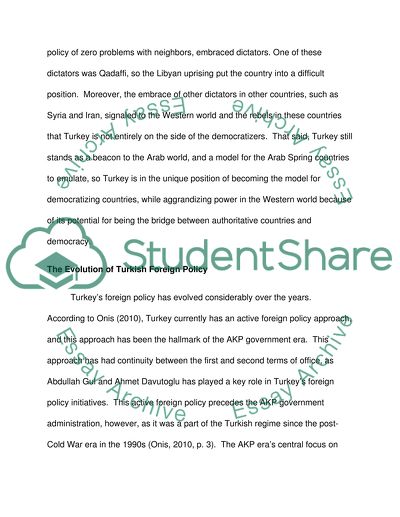Cite this document
(“Turkey's Foreign Policy on Arab Spring Essay Example | Topics and Well Written Essays - 5000 words”, n.d.)
Retrieved de https://studentshare.org/politics/1392263-turkey-s-foreign-policy-on-arab-spring
Retrieved de https://studentshare.org/politics/1392263-turkey-s-foreign-policy-on-arab-spring
(Turkey'S Foreign Policy on Arab Spring Essay Example | Topics and Well Written Essays - 5000 Words)
https://studentshare.org/politics/1392263-turkey-s-foreign-policy-on-arab-spring.
https://studentshare.org/politics/1392263-turkey-s-foreign-policy-on-arab-spring.
“Turkey'S Foreign Policy on Arab Spring Essay Example | Topics and Well Written Essays - 5000 Words”, n.d. https://studentshare.org/politics/1392263-turkey-s-foreign-policy-on-arab-spring.


